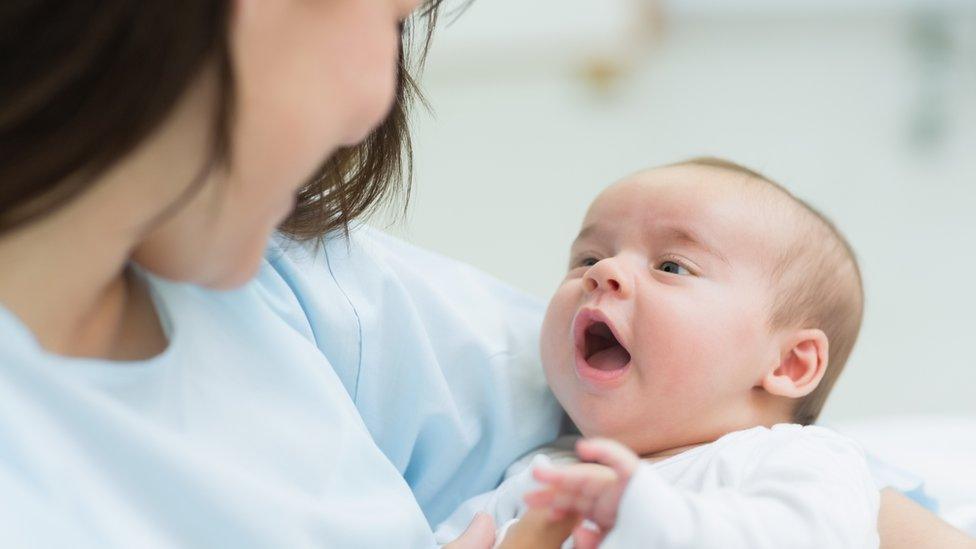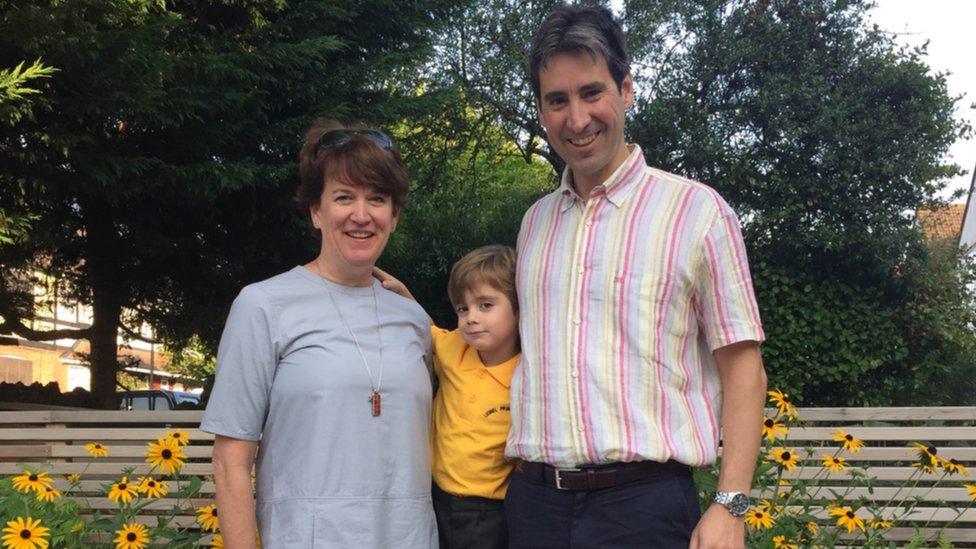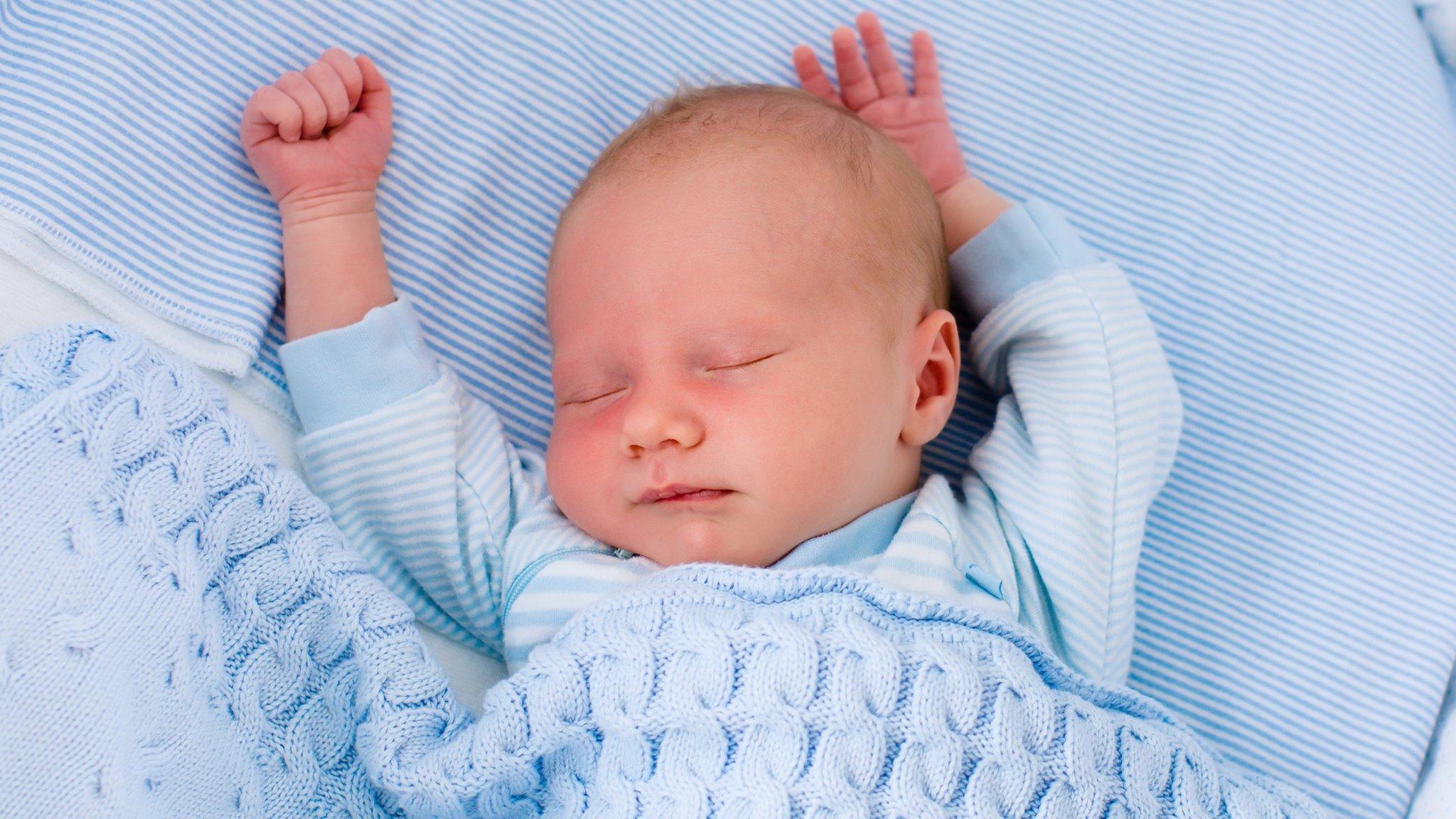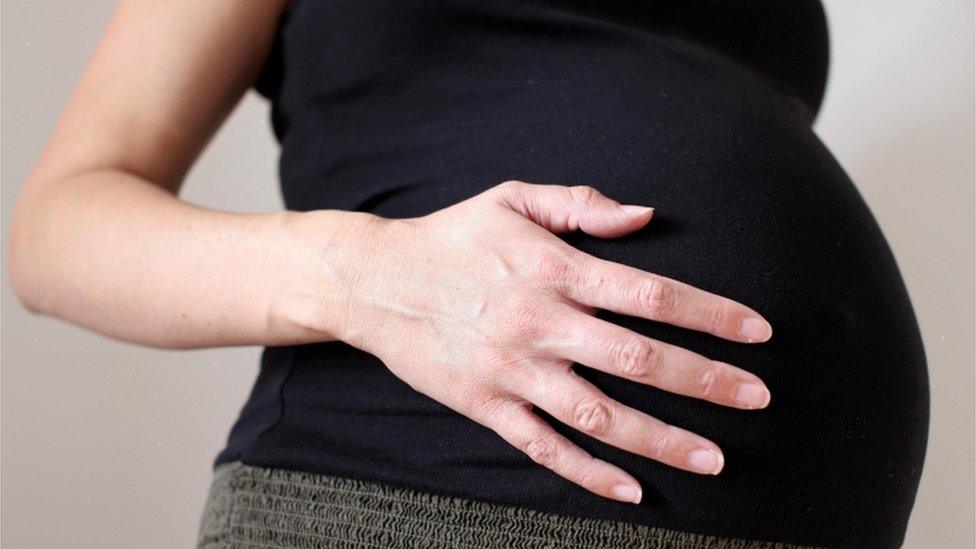Babies born to women aged 45 and over rises by a third
- Published

The number of mothers aged over 45 is rising year on year
The rate of babies born to women aged 45 and over in England is up by more than a third in six years, analysis of official statistics has revealed.
There were 1,578 babies born to mothers aged 45 and over in England in 2009, but in 2015 there were 2,119.
London has the highest rate of older mothers, seven times that of the North East.
The Office for National Statistics (ONS) said there were regional "social, economic and cultural differences".
The number of babies born to mothers under 18 is half what it was in 2009, down from 11,135 (11.8 per 1,000 women) to 5,788 (6.3 per 1,000 women) in 2015.
For more stories from the BBC England data unit follow our Pinterest board., external
Prof Adam Balen, chairman of the British Fertility Society and spokesman for the Royal College of Obstetricians and Gynaecologists (RCOG), said: "The age at which women are having their first baby has increased over the past few decades due to a variety of social, professional and financial factors, and this trend is unlikely to be reversed.
"We know that female fertility starts to decline gradually from the late 20s and more rapidly from the mid 30s onwards.
"As well as potentially taking longer to get pregnant, later maternity can involve a greater risk of miscarriage, a more complicated labour, and medical intervention at the birth.
"The data [also] shows that London had the lowest birth rate for women under 18 in 2015, with 4.4 births per 1,000 women. We welcome this positive news which reflects the sustained efforts on access to education and reliable contraception."
ONS statistician Nick Stripe said London had lowest under-18 birth rate but the highest birth rate for women aged 45 and over.
"In contrast, the north-east of England has the highest under-18 birth rate but the lowest birth rate for women aged 45 and over," he said.
"Social, economic and cultural differences between these areas are likely to be causing these differences."

A mother at 50

Sarah Crowley, pictured with husband Esteban, was 50 when she gave birth to Andres
Sarah Crowley wanted children, but did not meet husband Esteban until the age of 43.
It took seven years and six rounds of IVF, using an egg donor, before their son Andres, now four, was born.
Sarah, who was born in Connecticut in the US, has lived in London for 13 years and featured in the BBC documentary Fertility & Me presented by the One Show's Alex Jones.
Andres was born in Queen Charlotte's and Chelsea Hospital in Hammersmith.
His mother is not surprised that their story, while still rare, is more common in the capital than elsewhere.
"If you look at the economic differences, London is like a country on its own", Sarah said.
"The gap between wages and opportunities (across the country) is getting bigger and bigger."
Sarah, of Brentford, used to be a sales director for a travel technology company and is now re-training as a fertility coach.
And while she does not believe that every woman should do as she did and have a baby at 50, she challenges what she sees as the "stigma" attached to older mothers.
"Women shouldn't be made to feel that it's wrong. If you're like me and you spend seven years trying, you develop a thick skin.
"You do get warned, understandably, about pre-eclampsia, diabetes and so on, but you also know what you want. I want to be with Andres. I feel so settled. I don't want to be anywhere else, such as backpacking around Thailand."

The ONS said the rising number of older mothers was down to advances in fertility treatment as well as more women in higher education and attitudes around the importance of a career.
Jacque Gerrard, director for England at the Royal College of Midwives, said: "All women deserve the very best care, regardless of the age at which they give birth.
"Women have every right to give birth later in life, and we support that. But typically older women will require more care during pregnancy, and that means more midwives are needed."
She said there were benefits to mothers who give birth later, including "having life skills, more confidence in their abilities and a tendency to be financially more stable".
- Published13 July 2016

- Published9 March 2016
